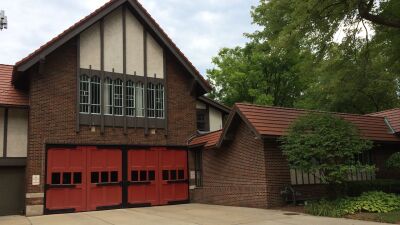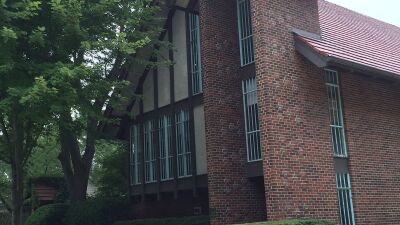GROSSE POINTE CITY — Like several of its neighbors, Grosse Pointe City is hoping to secure state funding for water and sewer infrastructure projects.
During a meeting April 17, the Grosse Pointe City Council voted unanimously in favor of applying to the state for money from the Drinking Water State Revolving Fund and the Clean Water State Revolving Fund.
City Engineer Stephen Pangori, of Anderson, Eckstein and Westrick Inc., said the Drinking Water State Revolving Fund, or DWSRF, is a low-interest loan offered through the Michigan Department of Environment and Great Lakes, or EGLE, with interest rates on a 20-year loan in the range of 2% to 2.5%. He said there is a chance for loan principal forgiveness through state or federal infrastructure dollars.
The City application is for a $7.5 million project that would primarily focus on lead water service replacement — which would account for nearly $6 million of the total. The City is required by the state to replace 5% of its known lead service lines annually over the next 20 years, Pangori said. The rest of the project would focus on water main replacement and looping, which would account for $1.67 million of the total.
Pangori said the project plan for the DWSRF needed to be submitted to the state by June 1. The City won’t know until this fall whether it qualifies for funding, he said.
“The bad news is, it’s extremely competitive,” Pangori warned city officials.
He added that cities “that fall into the disadvantaged range get top priority” but said there are other considerations the state takes into account when determining who gets this funding. For example, while the city used to have relatively few water main breaks, Pangori said those have increased in recent years.
The cost to the average City user would be $112 over 20 years, but that assumes that the City would receive the loan, accept the funding and pay for it over a 20-year term. A longer payback term, such as 30 years, would also be possible.
“It’s a fixed cost, so it’s based on meter size,” explained City Finance Director/Treasurer Kimberly Kleinow. “It’s not based on (water or sewer) usage.”
City Manager Pete Dame recommended that City officials only agree to accept the funding if they could get principal forgiveness.
“The whole point in doing this application is hoping we get loan forgiveness,” Dame said of the Drinking Water State Revolving Fund application. “If we don’t get the grants, you should say no to the loan.”
As Dame pointed out, the City has 20 years to address the lead service line issue, and it might qualify for a grant to do this in the future.
The Clean Water State Revolving Fund, or CWSRF, is also offered through EGLE and also involves low-interest loans with interest rates at around 2% to 2.5%. The City’s application is for $32.69 million worth of sanitary and storm sewer rehabilitation, as identified through a sewer cleaning and televising project over the last 18 months. The costliest element of this project would be $28.25 million worth of sewer separation, including a region north of Waterloo Avenue between Grosse Pointe Boulevard and Fisher Road.
The cost to the average water/sewer user would be an estimated $424 per year over 20 years, if the city received and accepted the loan and used a 20-year payback period.
Pangori said the application deadline for this program was May 1.
As was the case with the DWSRF application, Dame said they were recommending that City leaders only accept the state funds if they can get principal forgiveness or grants. The city has also filed for a Federal Emergency Management Agency grant for this work; if approved, Dame said the FEMA grant would cover about 80% of the cost.
The city won’t find out until this fall whether it has qualified for FEMA or CWSRF funds, officials said.
 Publication select ▼
Publication select ▼

























